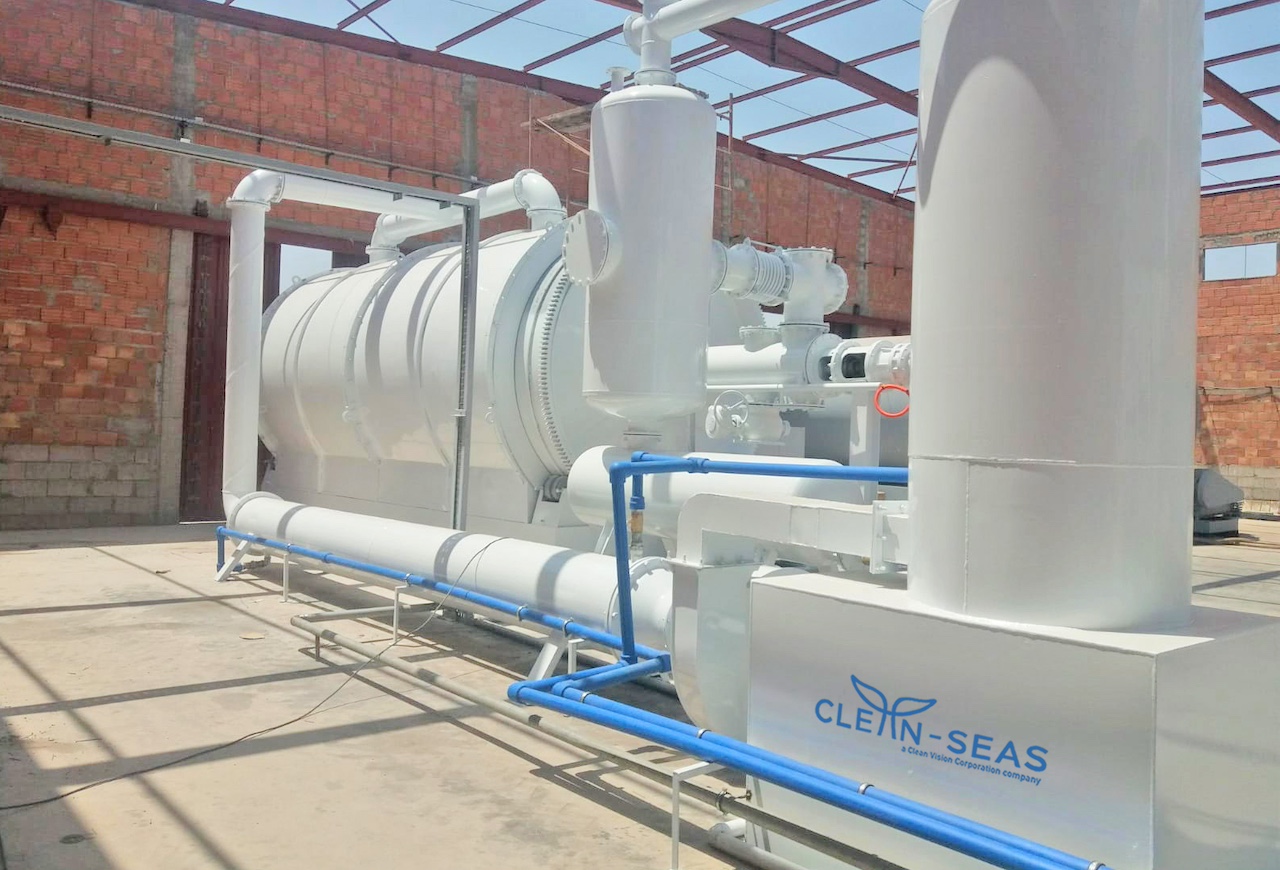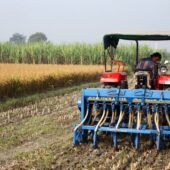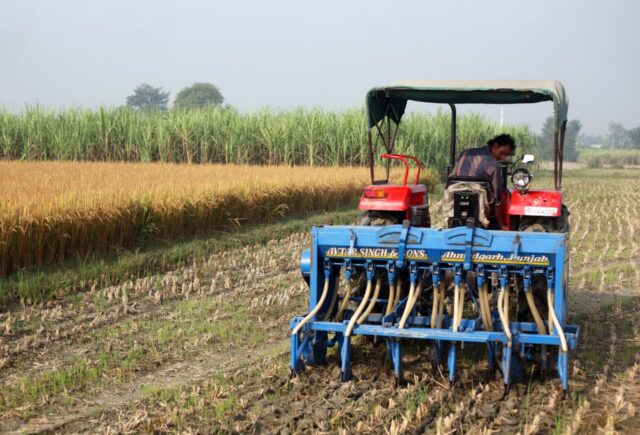The company, which processes hard-to-recycle plastics, is in talks with institutional investors over the launch of a $340m bond to fund expansion.

Clean-Seas, a firm rolling out technology that addresses the growing global challenge of dealing with waste plastics that cannot easily be recycled, said it had started a fund-raising round for a $340m (€307m) green bond issue and hopes to announce its first investors in coming weeks.
The bond is being raised by Clean-Seas UK, one of a number of regional subsidiaries of US-registered Clean Vision Corporation, which builds plants that use pyrolysis to convert plastics into clean fuels and hydrogen.
The company said it is currently in discussions over possible investment in the bond with European institutional investors and sovereign wealth funds. It hopes that the first investments will be forthcoming later this year.
The 10-year “green impact bond”, carries a 7% per annum coupon – rising to 8% depending on financial performance – to be paid after the first 12 months. The minimum bondholding is $100,000.
The bond issue, which is being handled by Luxembourg-based Super Global Securitisation, is designed to conform with the International Capital Markets Association Green Bond Principles.
Pyrolysis
Using pyrolysis to convert plastics could make an important contribution to cleaning up the planet, as it provides a way to process materials such as low-density polyethylene, polypropylene, and polystyrene waste which are hard to recycle and currently end up in landfill, incinerators or dumped in the sea.
Shaun Wootton, managing director of Clean-Seas UK, told Impact Investor that if the global waste plastics crisis is to be tackled, process such as pyrolysis need to be deployed widely, and that the global market for those successfully deploying the technology is likely to sizeable, given the scale of problem.
Treating plastics via pyrolysis is not a new concept and there are plenty of companies eager to get their own versions of the technology to scale, but Wootton does not see Clean-Seas as being in a race for market share.
“Even if all our planned sites were operational, we would only be providing a tiny share of what’s needed, so there is plenty of room for everyone and we will still be making a difference,” he said.
Around 400 million tonnes of all types of plastics were produced globally in 2022 alone, according to trade body Plastics Europe.
Clean-Seas is aiming to treat 6,600 tonnes of waste in 2024 that would normally go to landfill or be incinerated rising to 240,000 tonnes by 2027 and 1.5 million tonnes by 2030.
Scaling up
The business currently has two relatively small-scale conversion facilities in operation in India and Morocco. They are supplied by local waste that use pyrolysis technology licensed by the company from an undisclosed developer.
The Moroccan plant in Agadir currently converts 20 tonnes per day (t/d) of waste plastic into ultra-low sulphur fuels. This is scheduled to expand to 120 t/d by the end of 2024, and more than 500 t/d in the following 18 months.
Cleans-Seas is also building a $60m facility in a joint venture with the US state of West Virginia, and has a partnership with Arizona State University and its Rob and Meloni Walton Sustainability Solution Services programme to build a plant in Phoenix.
Construction of a plant in Turkey is in the pipeline as part of plans to expand in Europe, the Middle East, India and the Far East, if approvals and funding are forthcoming. Support from development agencies, governments and other public bodies are likely to play an important role in getting projects of the ground in several countries, given the nascent stage of the sector.
Pyrolysis involves heating waste material to at least 350°C in the absence of oxygen to deconstruct it. The lack of oxygen means combustion that would release potentially toxic gases does not occur at this stage. Instead, the plastic waste decomposes thermally into combustible gases and a residue known as carbon char.
Clean-Seas’ plants currently use the combustible gases to produce so-called plastic pyrolysis oil, a synthetic oil that it sells to oil and petrochemicals companies seeking petroleum substitutes.
Left-over gases are then re-circulated to provide heat for future use at the plant, cutting down on carbon emissions. Wootton said this recycling of gases addressed one issue that has drawn criticism to the use of plastics pyrolysis, as some producers have emitted leftover gases into the atmosphere, damaging the green credentials of those projects.
Building revenue streams
Future revenue streams could include sales of green hydrogen, which can be produced by adjusting the pyrolysis process, though work remains to be done to commercialise this process. Income can also be derived from selling the char, uses for which include the manufacture of bonding agents and creating asphalt for road surfaces. The company also expects to gain income from fees for accepting plastic waste from government, municipalities and companies that would otherwise have to dispose of it themselves.
Another potential source of revenue is the generation of carbon credits or renewable energy credits by producing plastic pyrolysis oil as a substitute for crude oil production, as well as tapping into fledgling plastic credits markets, such as the Singapore-based Plastic Credit Exchange (PCX).
But getting to that stage requires a lot of upfront spending, funded by instruments such as Clean-Seas’ new bond, as well as borrowing and potentially expanding access to public markets. Clean-Seas’ parent Clean Vision currently trades on the US Over the Counter (OTC) market, but says it hopes to move its listing to a senior exchange in the coming months.
Even upfront costs required for the relatively small-scale plants Clean-Seas is building now can absorb capex of $100m or more, making it imperative to get plants operational and bringing in revenues as fast as possible.
Wootton said Clean-Seas was able to develop its sites faster than some others in the sector, allowing the revenue to flow earlier.
“The pyrolysis equipment takes approximately eight months to build and then you can be operational two to three months after that,” he said.
The company hopes to process cross-border plastics as well as those generated locally in some of these plants, if the countries of origin can be persuaded to pay. For example, Turkey has become an established destination for plastic waste from countries such as the UK and Germany over recent years, where it is supposed to be recycled or incinerated. Processing some of that waste in local pyrolysis facilities could provide an alternative to incineration or burial.
Wootton, who is a shareholder in Clean-Seas UK, has worked in multiple business sectors over several decades, and has been involved with a number of startups in fintech, telecoms, property and app development.





